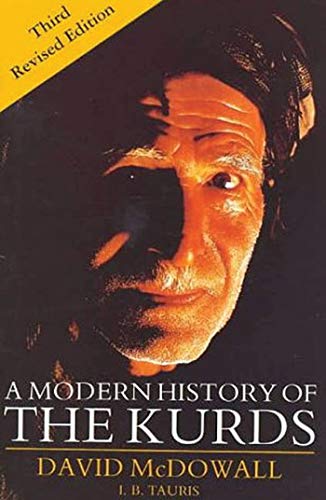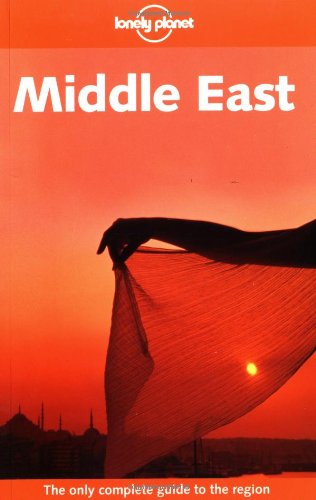Curious about the Middle East?
Explore the Middle East through captivating reads! Discover top books about the region's culture, history, and mysteries—perfect for curious minds.

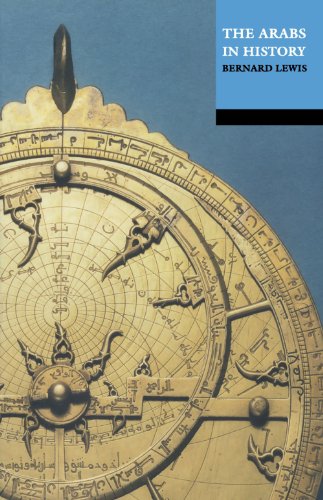

Book
A Peace to End All Peace
by David Fromkin
The critically acclaimed New York Times bestselling account of how the modern Middle East came into being after World War I, and why it is in upheaval today In our time the Middle East has proven a battleground of rival religions, ideologies, nationalisms, and dynasties. All of these conflicts, including the hostilities between Arabs and Israelis that have flared yet again, come down, in a sense, to the extent to which the Middle East will continue to live with its political inheritance: the arrangements, unities, and divisions imposed upon the region by the Allies after the First World War. In A Peace to End All Peace, David Fromkin reveals how and why the Allies came to remake the geography and politics of the Middle East, drawing lines on an empty map that eventually became the new countries of Iraq, Israel, Jordan, and Lebanon. Focusing on the formative years of 1914 to 1922, when all-even an alliance between Arab nationalism and Zionism-seemed possible he raises questions about what might have been done differently, and answers questions about why things were done as they were. The current battle for a Palestinian homeland has its roots in these events of 85 years ago.


Book
From Beirut to Jerusalem
by Thomas L. Friedman
Examines Israeli-Palestinian relations, the PLO, Israeli politics, Lebanese factions, news reporting from the Middle East, and other issues of the Middle East.


Book
The Dream Palace of the Arabs
by Fouad Ajami
From Fouad Ajami, an acclaimed author and chronicler of Arab politics, comes a compelling account of how a generation of Arab intellectuals tried to introduce cultural renewals in their homelands through the forces of modernity and secularism. Ultimately, they came to face disappointment, exile, and, on occasion, death. Brilliantly weaving together the strands of a tumultuous century in Arab political thought, history, and poetry, Ajami takes us from the ruins of Beirut's once glittering metropolis to the land of Egypt, where struggle rages between a modernist impulse and an Islamist insurgency, from Nasser's pan-Arab nationalist ambitions to the emergence of an uneasy Pax Americana in Arab lands, from the triumphalism of the Gulf War to the continuing anguished debate over the Israeli-Palestinian peace accords. For anyone who seeks to understand the Middle East, here is an insider's unflinching analysis of the collision between intellectual life and political realities in the Arab world today.
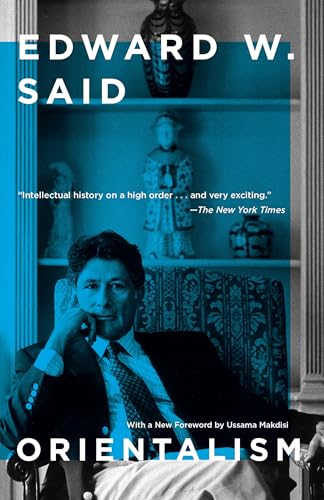

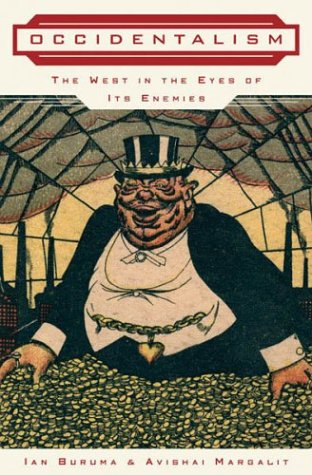

Book
What Went Wrong?
by Bernard Lewis
For centuries, the world of Islam was in the forefront of human achievement -- the foremost military and economic power in the world, the leader in the arts and sciences of civilization. Christian Europe was seen as an outer darkness of barbarism and unbelief from which there was nothing to learn or to fear. And then everything changed. The West won victory after victory, first on the battlefield and then in the marketplace. In this elegantly written volume, Bernard Lewis, a renowned authority an Islamic affairs, examines the anguished reaction of the Islamic world as it tried to make sense of how it had been overtaken, overshadowed, and dominated by the West. In a fascinating portrait of a culture in turmoil, Lewis shows how the Middle East turned its attention to understanding European weaponry, industry, government, education, and culture. He also describes how some Middle Easterners fastened blame on a series of scapegoats, while others asked not "Who did this to us?" but rather "Where did we go wrong?" With a new Afterword that addresses September 11 and its aftermath, What Went Wrong? is an urgent, accessible book that no one who is concerned with contemporary affairs will want to miss.
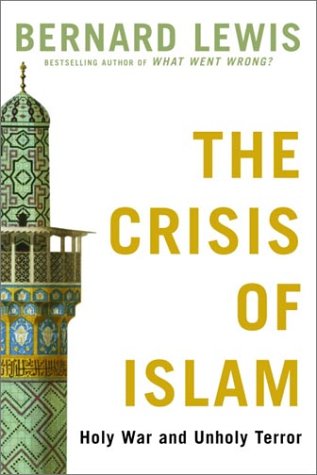

Book
Islam
by Karen Armstrong
No religion in the modern world is as feared and misunderstood as Islam. It haunts the popular imagination as an extreme faith that promotes terrorism, authoritarian government, female oppression, and civil war. In a vital revision of this narrow view of Islam and a distillation of years of thinking and writing about the subject, Karen Armstrong’s short history demonstrates that the world’s fastest-growing faith is a much more complex phenomenon than its modern fundamentalist strain might suggest.


Book
Nine Parts of Desire
by Geraldine Brooks
INTERNATIONAL BESTSELLER - Pulitzer Prize winning author presents the stories of a wide range of Muslim women in the Middle East. As an Australian American and an experienced foreign correspondent, Brooks' thoughtful analysis attempts to understand the precarious status of women in the wake of Islamic fundamentalism. "Frank, enraging, and captivating." - The New York Times Nine Parts of Desire is the story of Brooks' intrepid journey toward an understanding of the women behind the veils, and of the often contradictory political, religious, and cultural forces that shape their lives. Defying our stereotypes about the Muslim world, Brooks' acute analysis of the world's fastest growing religion deftly illustrates how Islam's holiest texts have been misused to justify repression of women, and how male pride and power have warped the original message of a once liberating faith. As a prizewinning foreign correspondent for The Wall Street Journal, Geraldine Brooks spent six years covering the Middle East through wars, insurrections, and the volcanic upheaval of resurgent fundamentalism. Yet for her, headline events were only the backdrop to a less obvious but more enduring drama: the daily life of Muslim women.

Book
Reading Lolita in Tehran
by Azar Nafisi
#1 NEW YORK TIMES BESTSELLER • We all have dreams—things we fantasize about doing and generally never get around to. This is the story of Azar Nafisi’s dream and of the nightmare that made it come true. For two years before she left Iran in 1997, Nafisi gathered seven young women at her house every Thursday morning to read and discuss forbidden works of Western literature. They were all former students whom she had taught at university. Some came from conservative and religious families, others were progressive and secular; several had spent time in jail. They were shy and uncomfortable at first, unaccustomed to being asked to speak their minds, but soon they began to open up and to speak more freely, not only about the novels they were reading but also about themselves, their dreams and disappointments. Their stories intertwined with those they were reading—Pride and Prejudice, Washington Square, Daisy Miller and Lolita—their Lolita, as they imagined her in Tehran. Nafisi’s account flashes back to the early days of the revolution, when she first started teaching at the University of Tehran amid the swirl of protests and demonstrations. In those frenetic days, the students took control of the university, expelled faculty members and purged the curriculum. When a radical Islamist in Nafisi’s class questioned her decision to teach The Great Gatsby, which he saw as an immoral work that preached falsehoods of “the Great Satan,” she decided to let him put Gatsby on trial and stood as the sole witness for the defense. Azar Nafisi’s luminous tale offers a fascinating portrait of the Iran-Iraq war viewed from Tehran and gives us a rare glimpse, from the inside, of women’s lives in revolutionary Iran. It is a work of great passion and poetic beauty, written with a startlingly original voice. Praise for Reading Lolita in Tehran “Anyone who has ever belonged to a book group must read this book. Azar Nafisi takes us into the vivid lives of eight women who must meet in secret to explore the forbidden fiction of the West. It is at once a celebration of the power of the novel and a cry of outrage at the reality in which these women are trapped. The ayatollahs don’ t know it, but Nafisi is one of the heroes of the Islamic Republic.”—Geraldine Brooks, author of Nine Parts of Desire

Book
The Clash of Civilizations and the Remaking of World Order
by Samuel P. Huntington
Based on the author's seminal article in Foreign Affairs, Samuel P. Huntington's The Clash of Civilizations and the Remaking of World Order is a provocative and prescient analysis of the state of world politics after the fall of communism. In this incisive work, the renowned political scientist explains how "civilizations" have replaced nations and ideologies as the driving force in global politics today and offers a brilliant analysis of the current climate and future possibilities of our world's volatile political culture.


Book
All the Shah's Men
by Stephen Kinzer
This is the first full-length account of the CIA's coup d'etat in Iran in 1953—a covert operation whose consequences are still with us today. Written by a noted New York Times journalist, this book is based on documents about the coup (including some lengthy internal CIA reports) that have now been declassified. Stephen Kinzer's compelling narrative is at once a vital piece of history, a cautionary tale, and a real-life espionage thriller.

Book
The Prize
by Daniel Yergin
Chronicles the history of the oil industry and the forces that have shaped the modern world.

Book
Sleeping with the Devil
by Robert Baer
“Saudi Arabia is more and more an irrational state—a place that spawns global terrorism even as it succumbs to an ancient and deeply seated isolationism, a kingdom led by a royal family that can’t get out of the way of its own greed. Is this the fulcrum we want the global economy to balance on?” In his explosive New York Times bestseller,See No Evil, former CIA operative Robert Baer exposed how Washington politics drastically compromised the CIA’s efforts to fight global terrorism. Now in his powerful new book, Sleeping with the Devil, Baer turns his attention to Saudi Arabia, revealing how our government’s cynical relationship with our Middle Eastern ally and America’s dependence on Saudi oil make us increasingly vulnerable to economic disaster and put us at risk for further acts of terrorism. For decades, the United States and Saudi Arabia have been locked in a “harmony of interests.” America counted on the Saudis for cheap oil, political stability in the Middle East, and lucrative business relationships for the United States, while providing a voracious market for the kingdom’s vast oil reserves. With money and oil flowing freely between Washington and Riyadh, the United States has felt secure in its relationship with the Saudis and the ruling Al Sa’ud family. But the rot at the core of our “friendship” with the Saudis was dramatically revealed when it became apparent that fifteen of the nineteen September 11 hijackers proved to be Saudi citizens. InSleeping with the Devil, Baer documents with chilling clarity how our addiction to cheap oil and Saudi petrodollars caused us to turn a blind eye to the Al Sa’ud’s culture of bribery, its abysmal human rights record, and its financial support of fundamentalist Islamic groups that have been directly linked to international acts of terror, including those against the United States. Drawing on his experience as a field operative who was on the ground in the Middle East for much of his twenty years with the agency, as well as the large network of sources he has cultivated in the region and in the U.S. intelligence community, Baer vividly portrays our decades-old relationship with the increasingly dysfunctional and corrupt Al Sa’ud family, the fierce anti-Western sentiment that is sweeping the kingdom, and the desperate link between the two. In hopes of saving its own neck, the royal family has been shoveling money as fast as it can to mosque schools that preach hatred of America and to militant fundamentalist groups—an end game just waiting to play out. Baer not only reveals the outrageous excesses of a Saudi royal family completely out of touch with the people of its kingdom, he also takes readers on a highly personal search for the deeper roots of modern terrorism, a journey that returns time again and again to Saudi Arabia: to the Wahhabis, the powerful Islamic sect that rules the Saudi street; to the Taliban and al Qaeda, both of which Saudi Arabia helped to underwrite; and to the Muslim Brotherhood, one of the most active and effective terrorist groups in existence, which the Al Sa’ud have sheltered and funded. The money and arms that we send to Saudi Arabia are, in effect, being used to cut our own throat, Baer writes, but America might have only itself to blame. So long as we continue to encourage the highly volatile Saudi state to bank our oil under its sand—and so long as we continue to grab at the Al Sa’ud’s money—we are laying the groundwork for a potential global economic catastrophe.

Book
Imperial Hubris
by Michael Scheuer
According to the author, the greatest danger for Americans confronting the Islamist threat is to believe--at the urging of U.S. leaders--that Muslims attack us for what we are and what we think rather than for what we do.

Book
Ghost Wars
by Steve Coll
Winner of the Pulitzer Prize for Nonfiction • A New York Times bestseller “The CIA itself would be hard put to beat his grasp of global events . . . Deeply satisfying.” —The New York Review of Books From the award-winning and bestselling author of Directorate S and The Achilles Trap comes the explosive first-hand account of America's secret history in Afghanistan. To what extent did America’s best intelligence analysts grasp the rising thread of Islamist radicalism? Who tried to stop bin Laden and why did they fail? Comprehensively and for the first time, Pulitzer Prize-winning journalist Steve Coll recounts the history of the covert wars in Afghanistan that fueled Islamic militancy and sowed the seeds of the September 11 attacks. Based on scrupulous research and firsthand accounts by key government, intelligence, and military personnel both foreign and American, Ghost Wars details the secret history of the CIA’s role in Afghanistan (including its covert operations against Soviet troops from 1979 to 1989), the rise of the Taliban, the emergence of bin Laden, and the failed efforts by U.S. forces to find and assassinate bin Laden in Afghanistan.
